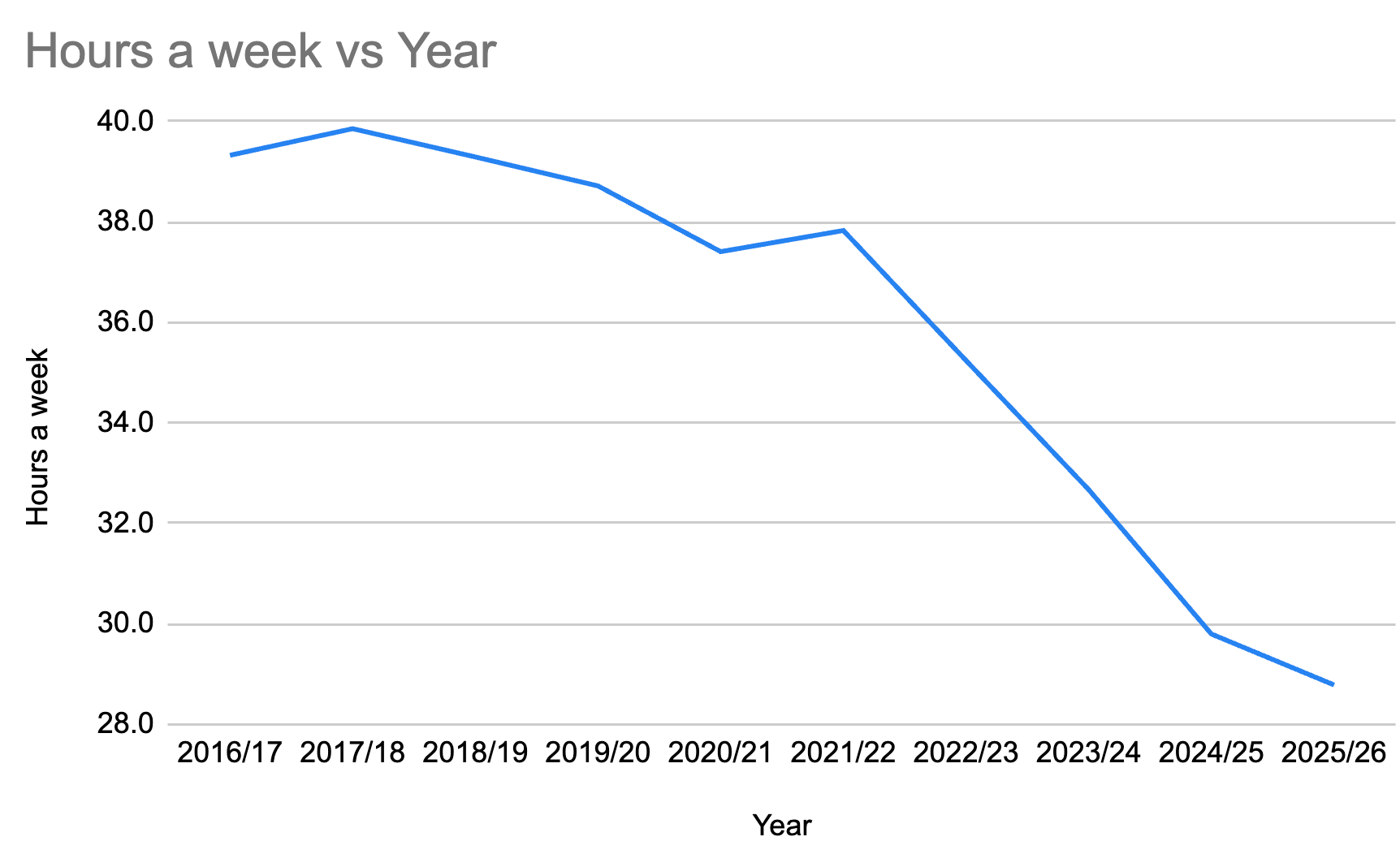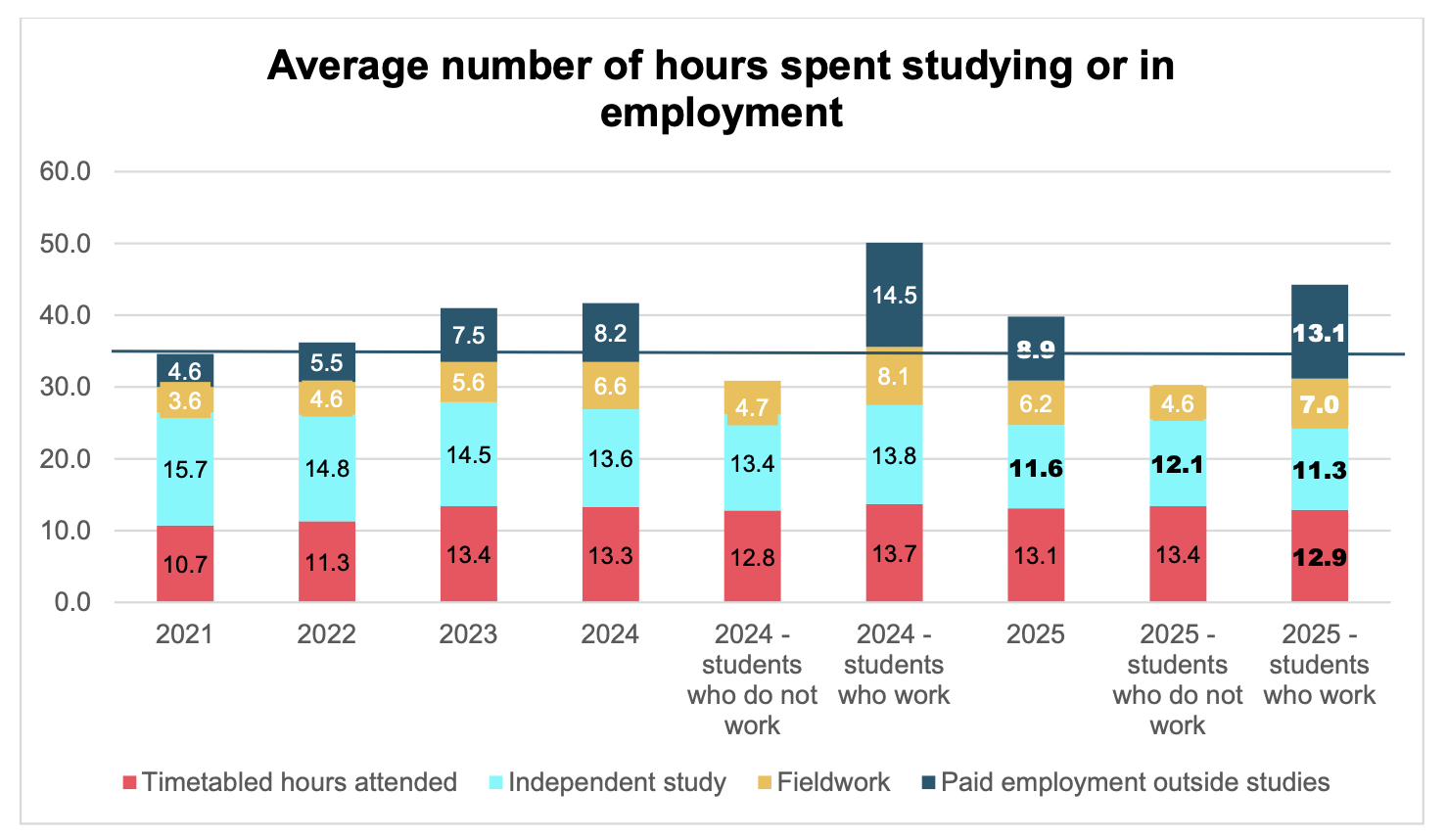Students are working harder than ever – because they have to
Jim is an Associate Editor (SUs) at Wonkhe
Tags
It’s easy to think about whether increases to it have been keeping up with inflation, for example.
But given how important employment during a full-time course has become to the financing of studies for students, one of the most important things we can do is look at the extent to which the system supports students to “not” work and spend time studying instead.
If we ignore the problem with the means test (it’s both highly problematic for many students and has thresholds set when most Freshers were born) and look at the maximum available loan for English domiciled students (away from home and outside of London) we can examine its “value” in terms of minimum wage hours that it funds.
For simplicity, I’ve looked here at the NMW for 21 year-olds over the years, and assumed that the loan supports a student for 30 weeks of a year.
In the first year that students could only borrow (prior to 2016 there was a mix of loan and grant), you’ll see that the system pretty much matched the study hours expectation in the credit system – 60 ECTS is 1,200 hours, so 40 hours a week.

Two pressures have combined to force the collapse we see since. First, particularly since the inflation crisis of 2021, maintenance loans have failed to keep pace with inflation because the OBR (on whose projections increases have been based) keeps finding that the reality turns out to be higher – and DfE never corrects the problem.
Second, the NMW has been increasing – in recent years because it’s moving towards a method that is based on the actual costs of living that people face in the economy.
The result is that without additional support, students undertake more paid work (if they can, and if they can find it) and/or skimp on studying. The good news is that study time, according to the HEPI/Advance HE Student Academic Experience Survey, has been consistently at or around 33 hours over the decade.
It’s their health, their extracurriculars and their personal/social lives that are getting hit.

The bad news is that we’ve gone from a third having a job during term-time in 2016 to two-thirds, with the average hours in paid work during term time (for over 21s) now at 26.6 hours. Ouch.

